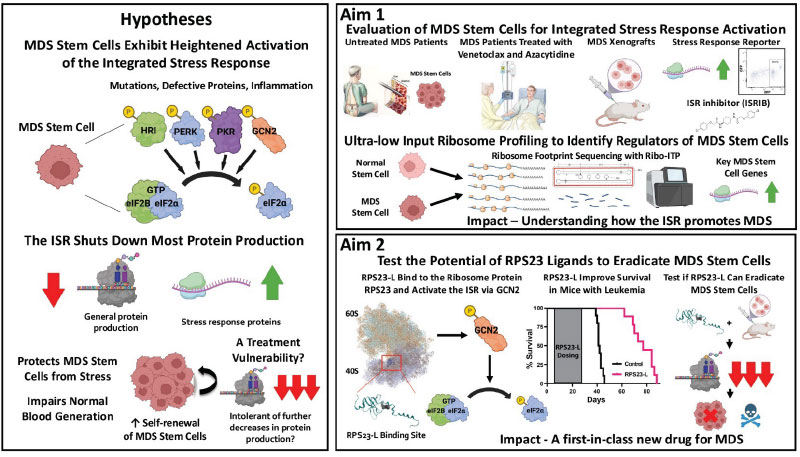
Researcher Profiles

Stephen Chung, M.D.
The University of Texas Southwestern Medical Center
2025 Funding Recipient
Understanding and Targeting the Integrated Stress Response in the Myelodysplastic Syndromes
Discovery Research Grant 2025
PROJECT SUMMARY
The myelodysplastic syndromes (MDS) occur when blood forming stem cells in the bone marrow acquire mutations that impair their ability to make blood. These mutated stem cells (MDS stem cells) are very resistant to treatment. Despite years of research into MDS stem cells, drugs that can get rid of them remain lacking.
MDS stem cells have defective ribosomes, which are the factories in cells that make proteins. The reason for this defect is poorly understood, but it helps MDS stem cells to resist treatment. When cells sense stress, they turn on the integrated stress response (ISR), which shuts down production of proteins and ribosomes. We have found that MDS stem cells have high levels of the ISR, and this may be why they have defective ribosomes.
We will determine which MDS disease subtypes exhibit high levels of the ISR. This will identify the MDS cases most likely to benefit from therapies that further activate the ISR. We have found that venetoclax, a drug used to treat leukemia, activates the ISR. We will study MDS patients treated with venetoclax to test if it works against MDS stem cells by activating the ISR. We have developed new drugs, called RPS23-L, that activate the ISR by binding to ribosomes. RPS23-L are effective against leukemia in mice and have few side effects. We will test if RPS23-L can eradicate MDS stem cells. Together, this research promises to validate activation of the ISR as a new treatment strategy that can eradicate MDS stem cells.

